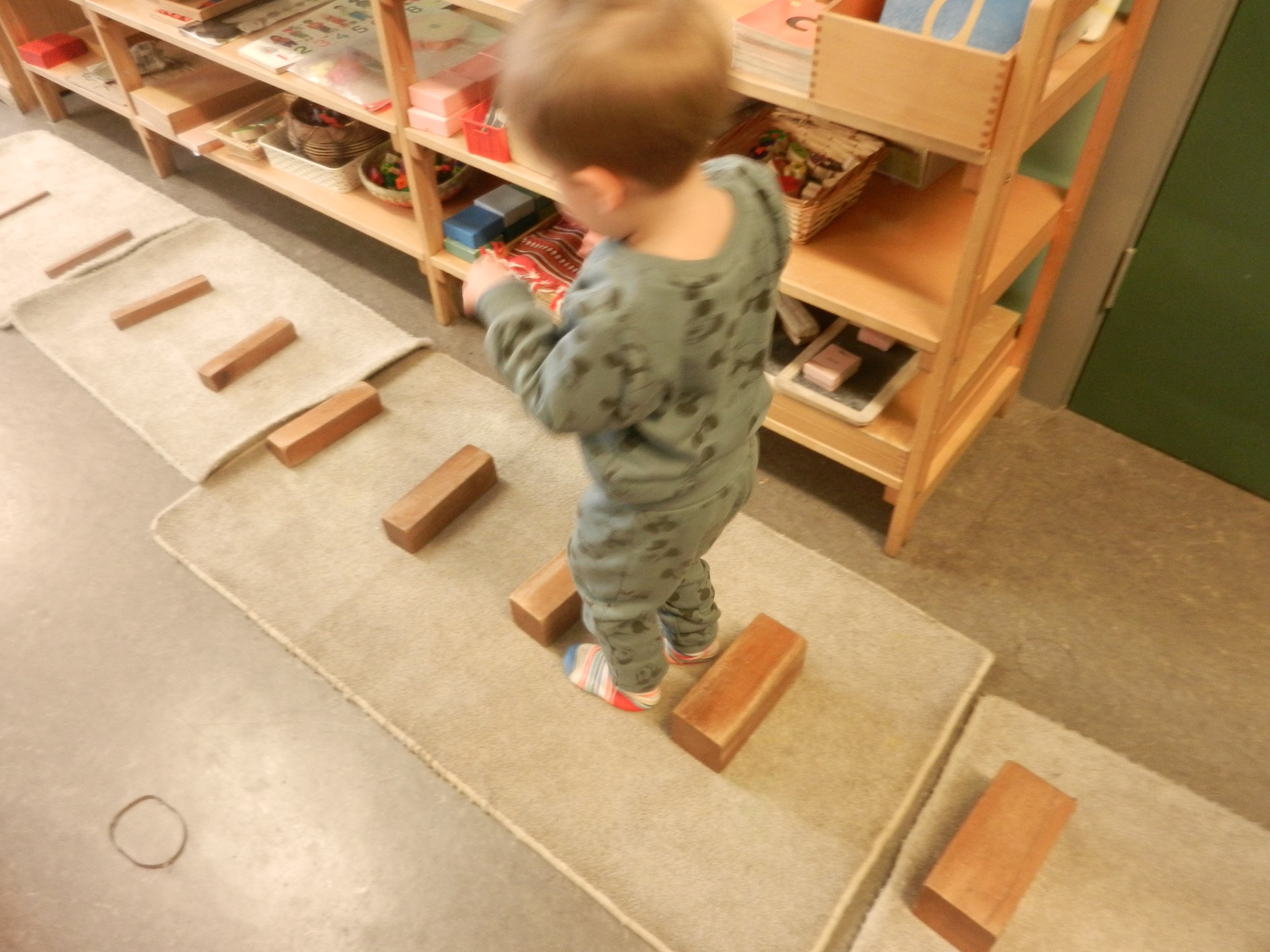
Principles of the Montessori Method
The Montessori approach aims to allow children to grow naturally whilst retaining their individuality and developing their own unique personality. Maria Montessori’s educational principles are based on the three central ideas listed below.
Universal Characteristics of Childhood
All children want to learn. With the freedom to investigate the world around them they will become active learners.
From birth to six years of age children have an absorbent mind. Everything that occurs in their life has a profound effect and, therefore, the quality of early experiences is of fundamental importance to their self-construction. Children pass through sensitive periods in their development.
The Prepared Environment
-
Freedom
There should be physical, intellectual and social freedom. Everything is child-sized and all the activities are within reach to allow free choice.
-
Structure and Order
The classroom is ordered and well planned. The curriculum and teaching materials are carefully selected and presented to the children. This provides a structure for their learning.
-
Simplicity and Aesthetic Awareness
The classroom is not overcrowded or over-stimulating with attention being paid to the development of aesthetic awareness.
-
Nature and Reality
There is emphasis on bringing about awareness of the real world and, in particular, the children are encouraged to take care of and learn to understand and respect the natural world around them.
-
Intellectual Materials
The Montessori materials cover developmental activities designed to meet the needs of children in five curriculum areas:
- Practical Life Skills
- Sensori-motor Activities
- Language Skills
- Mathematical Skills
- Cultural Knowledge -
Social Environment
The children are vertically grouped and not segregated by age or sex. There is an atmosphere of co-operation in the classroom, not competition.
Special Qualities of the Teacher (Directress/Director)
The teacher has had a professional preparation and has undergone a process of self-evaluation. S/he has a well-developed attitude and respect for the children in her/his care. S/he is responsible for selecting and making available the appropriate activities. S/he guides the children’s learning, helping them develop independence, concentration, self-motivation and self-discipline.

